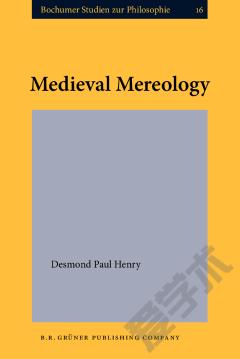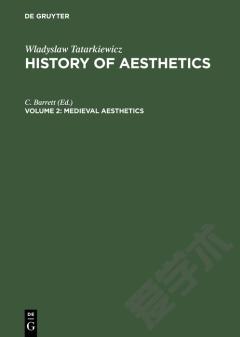Medieval Mereology.
Mereology is the theory which deals with parts and wholes in the concrete sense, and this study follows its varied fortunes during the Middle Ages. Preliminary indications as to its metaphysical situation are followed by a brief sketch of Boethius' contribution. Peter Abelard, Gilbert of Poitiers, Clarembald of Arras, and Joscelin of Soissons are among the twelfth-century authors examined. The effect of the subsequent recovery of Aristotle's Metaphysica on Mereology is typified by sketches of the many and varied uses made of the latter by Aquinas. A brief sample of Buridanian treatment is followed by an account of those applications made under the umbrella of thirteenth-century comment on Aristotle's De Sophisticis Elenchis. The curiously original theories of Wyclif are brought to light, as also also samples from Walter Bruleigh, Nicholas of Paris, William of Ockham, and Paul of Venice. Readers interested in such subjects as logic, metaphysics, philosophy, theology, linguistics, pyschology, and their history, will find the work relevant to their studies. No logical symbolism is used in the main body of the book, but some contemporary background is appended so that those who wish to do so may follow it up.
{{comment.content}}








 京公网安备 11010802027623号
京公网安备 11010802027623号